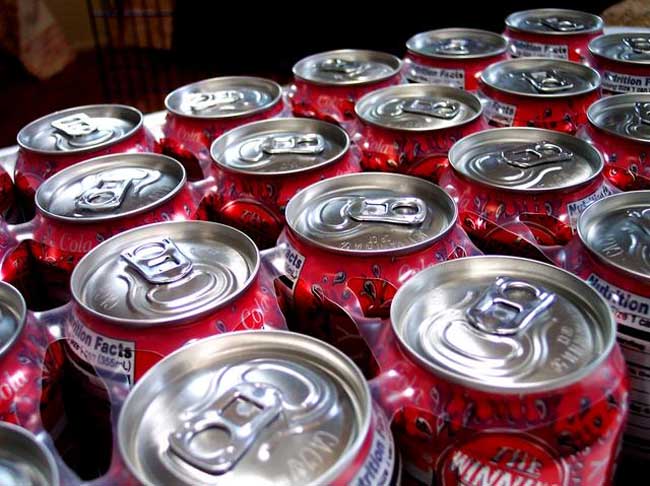Beverage Studies Biased in Favor of Industry, Researchers Say

Get the world’s most fascinating discoveries delivered straight to your inbox.
You are now subscribed
Your newsletter sign-up was successful
Want to add more newsletters?

Delivered Daily
Daily Newsletter
Sign up for the latest discoveries, groundbreaking research and fascinating breakthroughs that impact you and the wider world direct to your inbox.

Once a week
Life's Little Mysteries
Feed your curiosity with an exclusive mystery every week, solved with science and delivered direct to your inbox before it's seen anywhere else.

Once a week
How It Works
Sign up to our free science & technology newsletter for your weekly fix of fascinating articles, quick quizzes, amazing images, and more

Delivered daily
Space.com Newsletter
Breaking space news, the latest updates on rocket launches, skywatching events and more!

Once a month
Watch This Space
Sign up to our monthly entertainment newsletter to keep up with all our coverage of the latest sci-fi and space movies, tv shows, games and books.

Once a week
Night Sky This Week
Discover this week's must-see night sky events, moon phases, and stunning astrophotos. Sign up for our skywatching newsletter and explore the universe with us!
Join the club
Get full access to premium articles, exclusive features and a growing list of member rewards.
Drug companies aren't the only spin game in town when it comes to biased health-research claims.
Studies funded completely by food and drink companies on the nutritional benefits of soft drinks, milk and various juices are four to eight times more likely than independently funded studies to draw conclusions that favor the sponsoring industry, health researchers reported today.
The American Beverage Association (ABA), a trade association representing non-alcoholic beverage distributing and manufacturing companies, objected to the team's findings, throwing the bias claim back at them and their study.
The beverage-research bias finding comes from a systematic review, headed up by David S. Ludwig of the Children's Hospital, Boston, of 538 health-effects research papers on these commonly consumed non-alcoholic beverages published between January 1999 and December 2003.
Of these, the team focused on 111 research papers and found that 22 percent were sponsored entirely by a company in the food and beverage industry, 47 percent had no industry funding and 32 percent had some industry funding. The team then asked researchers with no knowledge of the sponsorship of each piece of research to categorize the conclusions of each paper as favorable, neutral or unfavorable.
The result was a strong correlation between industry-sponsored research and industry-favorable research.
The researchers used these terms to identify articles to analyze: milk, soft drinks, fruit juice, apple juice, orange juice, prune juice, cranberry juice, grapefruit juice, grape juice, guava juice, pear juice, pineapple juice, vegetable juice, carrot juice, tomato juice and carbonated beverages.
Get the world’s most fascinating discoveries delivered straight to your inbox.
"In view of the high consumption rates of these beverages, especially among children, the public health implications of this bias could be substantial," Ludwig and his colleagues wrote in their study.
In a press release, ABA President Susan K. Neely said the authors fail to explain why they excluded 332 of the 538 research articles. "By not disclosing the studies examined, it is entirely possible that articles were excluded simply because they did not prove the authors' point," she said.
However, Ludwig's paper includes a section that details the six criteria for selecting articles from the initial pull of 538, including that the study topic had to relate directly to soft drinks, juice or milk; at least one focus of the study had to be health, disease, or an indicator of disease; and the study had to focus on human rather than non-human subjects. A full list of the included articles is freely available upon request, he said.
Ludwig told LiveScience his advice to consumers: "When interpreting the results of a study, 'read the ingredients.'"
The high prevalence of industry funding for beverage studies surprised him a bit, Ludwig said.
"Over half of all studies we found had at least partial industry support, creating a considerable opportunity for financial conflict of interest to bias the literature," he said.
The findings come on the heels of recent reports that health research sponsored by drug companies are more likely than independent reviews to rate drugs favorably.? Some researchers have found that drug companies provided 30 percent of the $100 billion spent on biomedical research in the United States in 2004, Ludwig and his colleagues write in the journal PLoS Medicine, raising concerns about bias.
The new study focuses only on some non-alcoholic beverages, and it remains to be seen if such funding bias occurs throughout nutritional research, Ludwig's team states. If it does, it could be more of a problem for public health. Bias in drug research affects the health of those who take the drugs, while bias in nutritional research affects everyone's health, the scientists point out.
Bias always exists in science, coming from such sources as politics, career considerations and longstanding scientific viewpoints. But these types of bias tend to cancel one another out, Ludwig and his colleagues write. With financial conflicts of interest, the bias all goes in one direction, they said.
Robin Lloyd was a senior editor at Space.com and Live Science from 2007 to 2009. She holds a B.A. degree in sociology from Smith College and a Ph.D. and M.A. degree in sociology from the University of California at Santa Barbara. She is currently a freelance science writer based in New York City and a contributing editor at Scientific American, as well as an adjunct professor at New York University's Science, Health and Environmental Reporting Program.
 Live Science Plus
Live Science Plus











